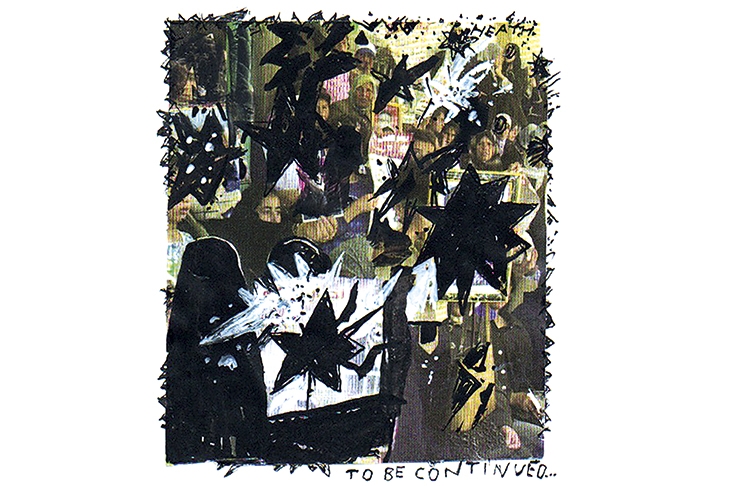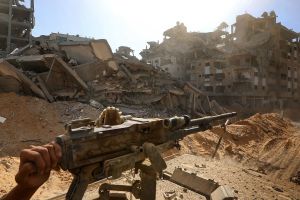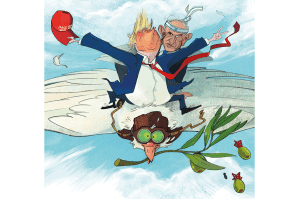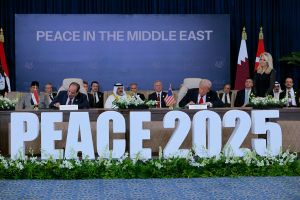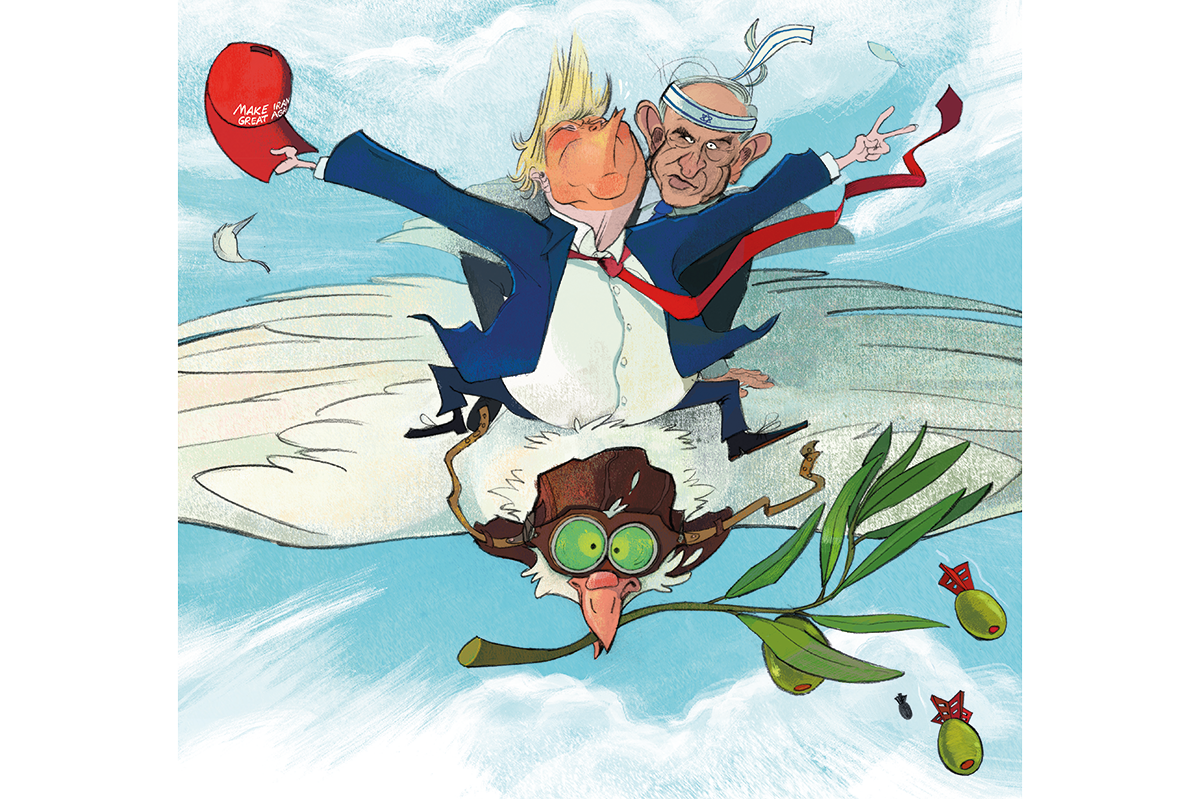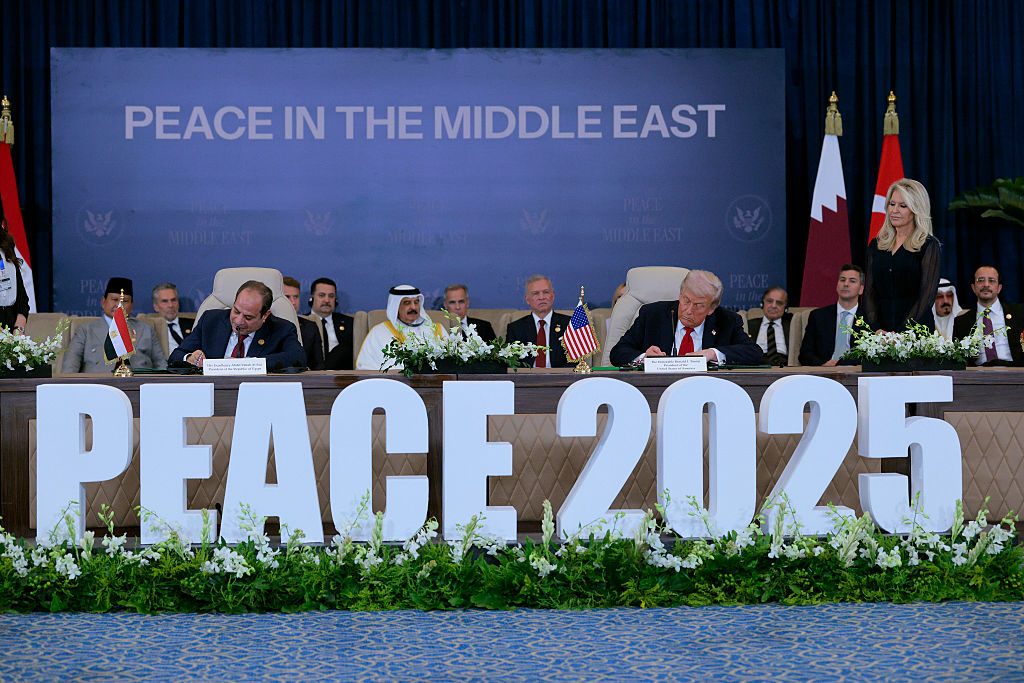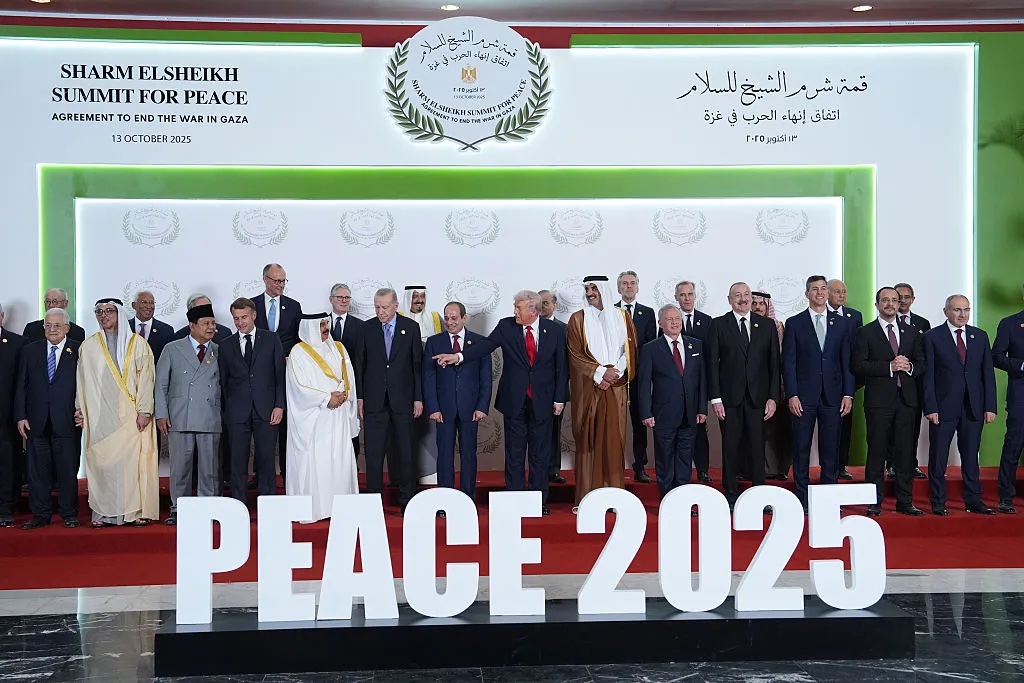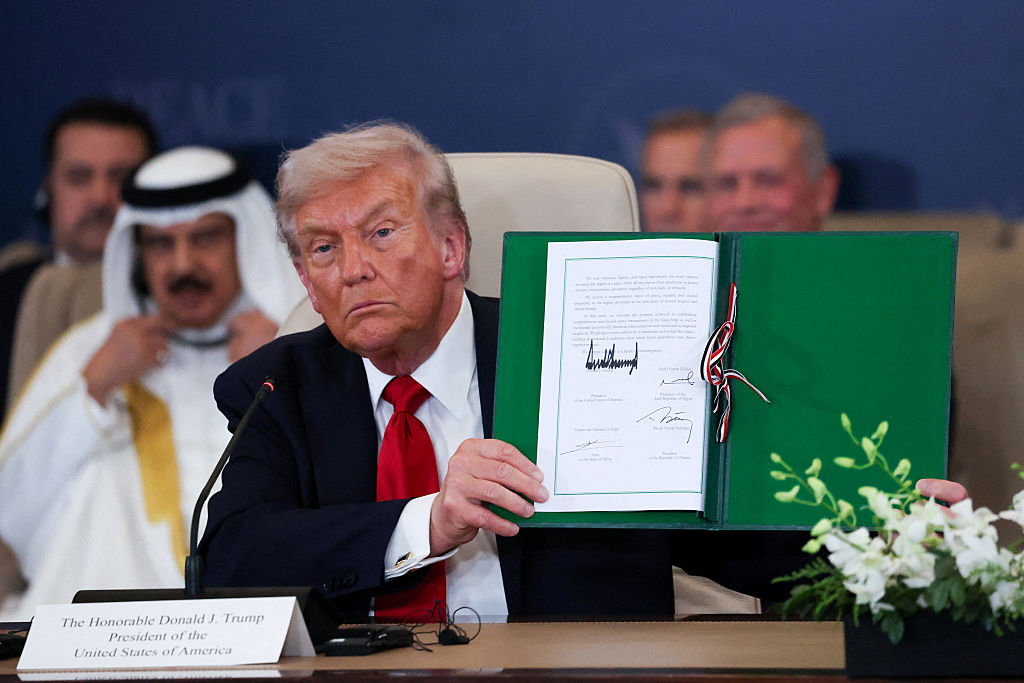Jerusalem
Thomas Friedman has a lot to answer for. The New York Times’s oracle has ruined, through overuse in his columns, the best source of local knowledge for journalists: the cab driver. No other hack can now quote his driver for fear of colleagues’ ridicule. Which is a pity, because the cab drivers in Jerusalem are those rare creatures who not only regularly cross between the three deeply divided cities — Zionist Jerusalem, ultra-Orthodox Jerusalem and Palestinian Jerusalem — but also converse freely with the denizens of all three. I wouldn’t be caught dead, of course, committing the cliché of quoting my driver, which was lucky because the one who drove me to Damascus Gate on Monday promised that by the end of the week, when the holy month of Ramadan is over, ‘the kids will be back in school and people will be back at work and all the violence will calm down’. Six hours later, Hamas fired from Gaza seven rockets towards Jerusalem, followed by salvo after salvo at towns in southern Israel.
The first time I smelled ‘skunk’ — a crowd-control weapon used by the Israeli police — at a demonstration in the West Bank a decade ago, I thought it was a cross between a putrefying cow’s carcass and raw sewage. It is the worst stench you will ever experience and even if you’re lucky enough to avoid the putrid stream launched from a water-cannon, it will impregnate itself inside your nostrils and your mind. Strangely, the ingredients of Israel’s riot-control liquid are just yeast and protein, fermented and mixed together in a secret formula. The smell is so awful that even American police departments, not known for their gentleness, have decided after inspecting the product not to purchase it. This month, as protests broke out in the Palestinian neighborhoods of East Jerusalem, it was used in extra-judicious quantities around Damascus Gate, in between multiple charges of mounted police. And I discovered that it’s even worse when mixed with horse manure.
Damascus Gate became a pitched battlefield because of the new chief of police’s idiotic idea at the start of Ramadan to place metal fences around the sunken plaza leading to the gate. It’s not only the main gathering place for coffee and cigarettes during the long Ramadan nights, once the daily fast is over, but also a central thoroughfare to the Al-Aqsa mosque, the third holiest site in Islam. The Palestinian youth were not going to allow the Zionists to encroach on Damascus Gate and by the time the police realized their mistake and removed the fences, another round of Israeli-Palestinian violence in the century-long conflict had kicked off. The rage spread this week, with hundreds of Palestinian rockets being lobbed at Israel’s cities, including Tel Aviv. Israeli air force more than matched them in retaliatory air strikes. On the streets, meanwhile, Jewish and Arab mobs have been on the rampage.
The gate is also the place to buy the two best types of hummus anywhere in the world. There’s the tiny stall of Akrimawi, for the purists who prefer a sweeter, smoother, tahini-rich blend, and next door the much larger Al-Ayed restaurant for the more tangy, slightly herbal version. Al-Ayed is also open 24 hours a day, serving day-laborers on their way to the nearby bus station, and insomniac writers. During the long hours of the fast, the seating areas are closed, but both establishments continued throughout the rioting to conduct a brisk takeaway business, for eating at home in the evening. The smell was too awful to sit and eat on the spot anyway.
Palestinians in Jerusalem live in a strange limbo. Unlike Arab citizens of Israel, most do not have full rights and cannot vote in national elections. But as residents of eastern Jerusalem, which was annexed by Israel 54 years ago, unlike the West Bank and Gaza, they have access to Israeli healthcare, social and local services, including a double jab of the Pfizer vaccine months ago. The availability of some of these services, however, leaves a little to be desired. As a result, daily conversations sometimes have a Monty Python-esque element of ‘What have the Israelis ever done for us?’ One source of tension in recent weeks has been the planned eviction of Palestinian families from the neighborhood of Sheikh Jarrah as a result of a long legal battle waged against them by religious Jewish settlers who have already taken over a number of homes. ‘To be honest, there are advantages to having the settlers here,’ one of the Palestinian residents told me. ‘I’ve lived here for 36 years and finally the city is regularly collecting the trash.’
One of the occupational hazards of reporting on Israeli affairs is having to constantly rewrite Benjamin Netanyahu’s political obituary. As the polls predict him losing office at every election, magnificent essays are prepared in advance, only to be spiked when he somehow manages to survive. I know of at least two foreign correspondents once based in Jerusalem who still routinely update their Bibi obits hopefully, long after leaving this posting. This week it finally seemed about to happen. An unlikely coalition of right-wing, centrist, left-wing and Arab parties seemed poised to muster a coalition. Then came the escalation in Jerusalem and Gaza, which put their talks on hold. Perhaps indefinitely. Unless there’s a ceasefire soon, Netanyahu may well live to fight another election. That’s 2,500 well-crafted words of mine that will never see the light of day.
This article was originally published in The Spectator’s UK magazine. Subscribe to the World edition here.



